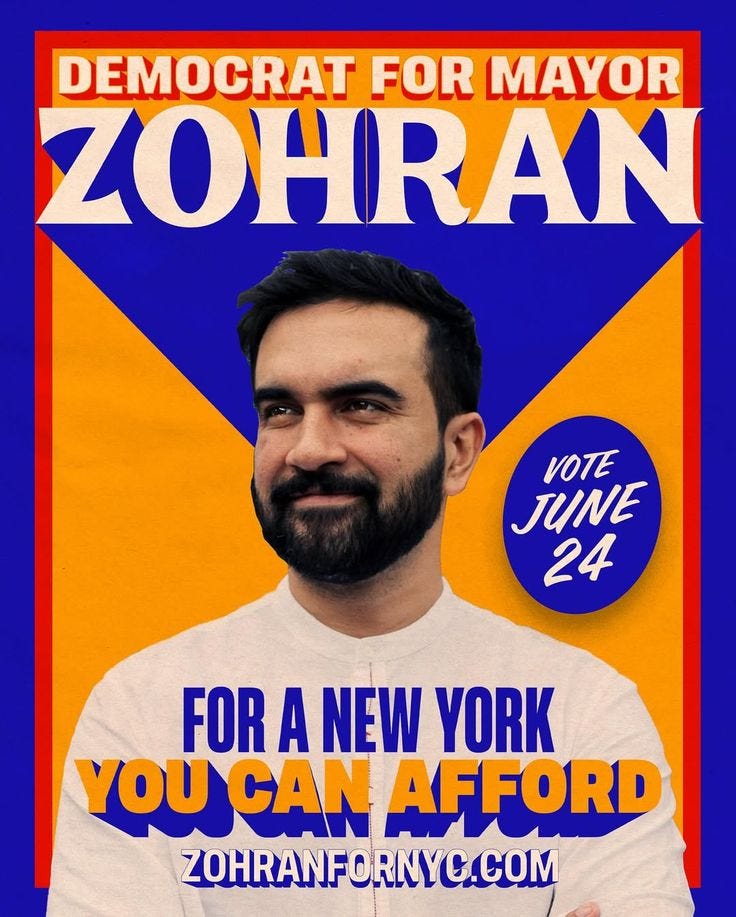The Real Reason Zohran Mamdani Won
And it wasn’t his boyish good looks or his short-form video skills
In case you’re not familiar, Zohran Mamdani was the major underdog in the Democratic primary for NYC mayor—up against establishment pick Andrew Cuomo—and he beat him by a wide margin. It was unexpected. Everyone’s still in shock.
Now the pundits are scrambling to explain why he won and what lessons we can take from it.
As a founder listening to all the follow-up analysis, I’m reminded that yes, Zohran’s charisma helped. And sure, he’s great on camera. But that’s not why he won.
He won because he built real relationships with the right people—the ones with actual influence, both online and offline.
I’m honestly surprised no one in the media is talking about this. Everyone’s obsessed with his sharp use of social media, his message around affordability, and, yes, the good looks. But none of that moves the needle without trusted messengers carrying your story forward.
My first job out of college was as a union organizer. It was the hardest job I ever had—and I only lasted a year. But one lesson stuck with me: always identify the people with real influence. It’s rarely the loudest voice in the room. It’s the person everyone else respects. The one whose name keeps coming up in conversation. The one people go to for advice.
Find the right people—and suddenly, you’re not speaking to one, you’re speaking to a movement.
Once you’ve found them, you build with them. That’s classic organizing. And that’s exactly what Zohran did.
He partnered with Comptroller Brad Lander for the first-ever cross-endorsement of its kind in a NYC mayoral race—helping consolidate progressive political power in a way that felt strategic, not performative. He made stops on influential cultural platforms like Subway Takes with Kareem Rahma, where his authenticity resonated with a much younger, plugged-in voter base. He also appeared on podcasts like Throwing Fits [a podcast produced by menswear diehards] and Chapo Trap House [a cult-favorite leftist podcast that blends sharp political analysis with chaotic humor], where he wasn’t afraid to go deep on housing policy, organizing strategy, and how power really works in New York.
He identified the right community leaders—both on the ground and online—who could amplify his message. He went from near-zero name recognition to a national progressive figure in under a year. Not because he hacked the algorithm. Because he understood that influence travels through relationships.
There are no shortcuts here. You have to pound the pavement. You have to invest in relationships.
And yes, you need to be sharp on video in today's social media obsessed era, but what matters most is saying something that actually hits home.
It takes time. It took him over a year. And it wasn’t until the final few weeks before the primary that the momentum became undeniable.
If you’re a founder, entrepreneur, or marketer trying to cut through the noise you need to take note. Build with intention. Cultivate the right relationships. Don’t just chase reach. Build trust, online and off [with the real influencers]. Do the work. Don’t expect shortcuts. That’s how you win.
P.S. This is still my favorite piece of content from the entire campaign. I was completely enthralled—it gave me major Anthony Bourdain energy.





